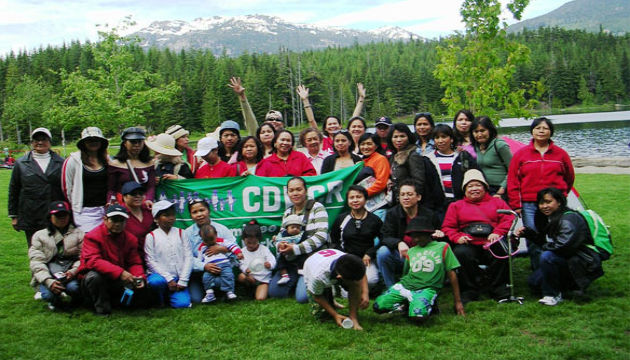According to the 2021 census data recently released by Statistics Canada, Canadian society is now aged with 19 per cent 65 or older.
In addition, 22 per cent are between the age of 55 and 64, the time when people are getting ready to retire. The 2021 census reveals that more than four in 10 Canadians are now old or getting old, a trend that will accelerate over the next two decades and beyond.
Like most developed countries, Canada has a very low fertility rate: 1.4 children per woman, far below the replacement rate of 2.1 needed to keep a population stable. Immigration can help to compensate for that baby gap, and the resulting ageing of society, by keeping immigration annual intake above 1 per cent of the population or higher, and skewed heavily in favour of younger workers. International students, temporary foreign workers, including caregivers and domestic workers – anyone young and willing to fill a vacant job should be offered permanent residence.
CDWCR's formation in August 1992
Thirty years ago, CDWCR (Committee for Domestic Workers and Caregivers Rights) was formed to empower domestic workers and caregivers so we can collectively fight for justice and equity. Our demand for landed status upon arrival and to those who are already here has continued to be our rallying call for justice and equity.
CDWCR was formed by five temporary foreign domestic workers and caregivers and community supporters, all volunteers who have the same goals and vision. Thirty years is a long time, and a victory in itself, to sustain its work and projects without an office, staff and regular funding. It has built a network of over 500 members; over 100 allies and supporters from unions, women’s groups, migrant groups, and other progressive, equity-seeking groups; and over thousands reached by our media work, advocacy and educational activities.
In its 30 years, CDWCR has organized at least eight to 10 workshops, four to six Tsikahans (informal conversations among peers), two terms of English as a Second Language program (Fall and Spring with four to five sessions each term), three to four picnics, and one to two fundraising events a year.
Workshops, study workshops, and Tsikahans cover issues about immigration, employment, racism, indigenous peoples' issues, mental health and wellness, assertiveness, family issues, reunification, income tax and financial basics. During the pandemic, the activities are done via Zoom or online. Also in its 30 years, CDWCR produced several newsletters, created and maintained its website, and developed and completed two versions of Caregivers Manuals.
Our community's victories
Political struggles and victories were also achieved in its 30 years. The following are some highlights:
- Since the late 1990’s under the then BC NDP government, we achieved the following:
- Domestic work was defined as work under the BC Employment Standards Act and workers who do the work have been protected under the BC Employment Standards Act.
- Domestic workers and caregivers (now, we call ourselves care workers), have been included under the protection of the Human Rights Act and the WorkSafe BC.
- BC employers have been required to register their care workers in a Central Registry
- Removed permanent residence (PR) application requirements to volunteer and take courses (when the Federal immigration policy was changed from Foreign Domestic Movement Program FDM to Live-in Caregiver Program LCP)
- Removed live-in requirement for temporary care workers (when the Federal immigration policy was changed from LCP to Temporary Foreign Worker Program’s caregiver pilots program)
- Assess required English and education requirements before coming to Canada (from TFWP to International Mobility Program’s home support pilots)
- Can bring their family when they come to Canada, the spouse with open work permit and children with student permit for (from TFWP to IMP)
- Interim Pathwaysto apply for permanent residency after a year of care work experience in Canada (from TFWP to IMP)
- Open work permit for vulnerable workers while looking for a new employer
- Foreign worker recruiters and employment agencies must be licensed under the BC Temporary Foreign Worker Protection Act
- MSP extension during COVID-19 to those whose MSP expired because their work permit expired
- Five paid sick days for workers covered under BC ESA
More Care Worker's Challenges
But with these victories are burdens added by the government in their PR application requirements such as the unnecessary high English level and high educational level requirements. Care workers have more than fulfilled their 24 months of work without such requirements so why add these barriers to workers’ PR application approval? Racism is embedded in government policies!
We’ve seen care workers whose immigration papers are not being processed or are very slow to process due to the pandemic and due to long immigration backlog. Care workers lost their jobs because their employers lost their jobs due to the pandemic and workers couldn’t find employers with LMIA. We’ve also seen cases of care workers losing their immigration status because of expired work permits. These care workers also suffer from anxiety and mental distress because of challenges resulting from their loss of jobs and immigration status:
- inability to pay their rent and other bills
- lose their homes
- inability to send financial support to their families back home
- suffer a much longer separation from their families.
Demand for Migrant Justice Continues
More than ever, to improve the lives of care workers and their families, and to protect their well-being like other workers, care workers must be granted permanent residency status now - those who are already in Canada and others upon arrival. CDWCR joins the voices of migrants and the demand for migrant justice by the Migrant Rights Network of which CDWCR is an active member: Full and Permanent Residents Immigration Status for All temporary migrants - those who are already here regardless of their immigration status and others upon arrival!



